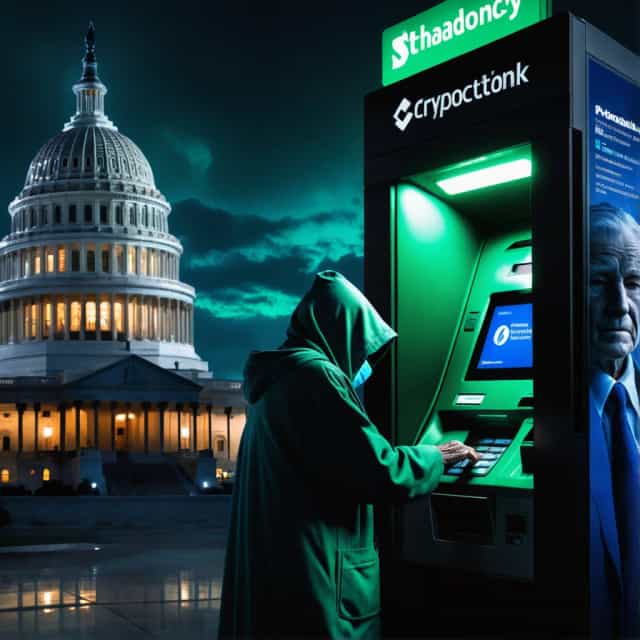
Image source: Block Media
FTX Files $1.15 Billion Lawsuit Against Genesis Digital Assets Over Alleged Misuse of Funds
FTX's bankruptcy recovery team, tasked with addressing the fallout from the cryptocurrency exchange's collapse, has filed a $1.15 billion lawsuit against Bitcoin mining company Genesis Digital Assets (GDA) and its co-founders. This lawsuit, unveiled on November 23 by outlets such as Decrypt, alleges misuse of funds under former CEO Sam Bankman-Fried’s management, adding another chapter to an already dramatic investigation into one of the largest crypto industry scandals to date.
The FTX Recovery Trust claims that Bankman-Fried commingled and misappropriated customer funds held by FTX.com to make what it describes as an unjustifiably inflated investment in GDA. The lawsuit positions these investments as an example of Bankman-Fried’s “reckless” behavior, accusing him of funneling substantial resources into a venture that did not prioritize customer or stakeholder interests.
FTX, once one of the leading cryptocurrency exchanges globally, collapsed in November 2022 after allegations of fraud and mismanagement by Bankman-Fried. Since then, its restructuring team has focused on recovering funds to compensate former customers.
Inside the Allegations: Bankman-Fried’s Fraudulent Investment in GDA
Central to the lawsuit are revelations about how funds moved from FTX into GDA’s accounts. The investment was routed through Alameda Research, an FTX subsidiary, which allegedly used customer deposits for transactions made with GDA. According to case documents, this misuse of assets constitutes a "fraudulent transfer," violating fundamental fiduciary responsibilities.
The legal filings also point to a strategically designed setup that apparently benefited Bankman-Fried regardless of GDA’s financial performance. In 2021, Alameda Research acquired shares in Genesis Digital Assets, positioning Bankman-Fried in a "heads-you-win, tails-you-win" scenario. The structure of the deal gave Alameda control of GDA’s equity stake while simultaneously maintaining its own 90% ownership interest. Allegedly, this convoluted arrangement enabled Bankman-Fried to exploit FTX’s funds to the detriment of its customers, effectively enriching himself while insulating GDA and Alameda Research from potential losses.
Genesis Digital Assets: A Global Cryptocurrency Mining Giant in Focus
Genesis Digital Assets, a prominent name in the cryptocurrency mining industry, has yet to comment publicly on the allegations outlined in the lawsuit. At the time of the contentious investment, GDA operated out of Kazakhstan, although its geographic footprint has since expanded. The company currently runs data centers across Europe and the United States and has relocated its headquarters to Dubai, United Arab Emirates.
Cryptocurrency mining poses unique challenges due to its high energy consumption and reliance on stable infrastructure, making the sector inherently risky for financial ventures. The lawsuit highlights how risky investments in GDA might have amplified FTX’s eventual downfall.
Sam Bankman-Fried's Downfall: Legal Consequences and Conviction
Sam Bankman-Fried is now serving a 25-year prison sentence after being convicted on seven counts of fraud in November 2023. Prosecutors accused the former FTX CEO of diverting billions of customer dollars to cover mounting investment losses connected to Alameda Research and ventures like Genesis Digital Assets. His trial further revealed the depth of mismanagement and reckless financial dealings that led to FTX’s bankruptcy.
The case propelled Bankman-Fried into the spotlight as a cautionary tale about the unregulated and volatile nature of the cryptocurrency industry. While he once epitomized the promise of crypto's future, his downfall has become synonymous with greed and irresponsibility.
FTX’s Recovery Efforts: A Complex Legal Framework
John J. Ray III, the veteran attorney overseeing FTX’s recovery operations, has described the case as eclipsing even the complexity of Enron’s infamous collapse two decades earlier. Ray, who gained prominence for his role in unraveling Enron’s financial chaos, emphasized the immense difficulty of tracing and reclaiming lost customer assets amid opaque and intricate transactions spanning multiple subsidiaries.
Comparisons with Enron highlight the scale of mismanagement and ethical lapses in FTX’s collapse. Recovery efforts have been hindered by the decentralized and international scope of cryptocurrency transactions, which often leave few regulatory breadcrumbs to follow. Nonetheless, the restructuring team continues to work relentlessly in its bid to return funds to former FTX customers and restore some semblance of justice for those impacted by the exchange's misdeeds.
FTX’s lawsuit against Genesis Digital Assets underscores the sheer scale of alleged misappropriation and reckless financial misconduct under Sam Bankman-Fried’s leadership. As legal proceedings and recovery efforts continue, the case serves as a stark reminder of the consequences of inadequate oversight in the world’s rapidly evolving blockchain and cryptocurrency ecosystems.










